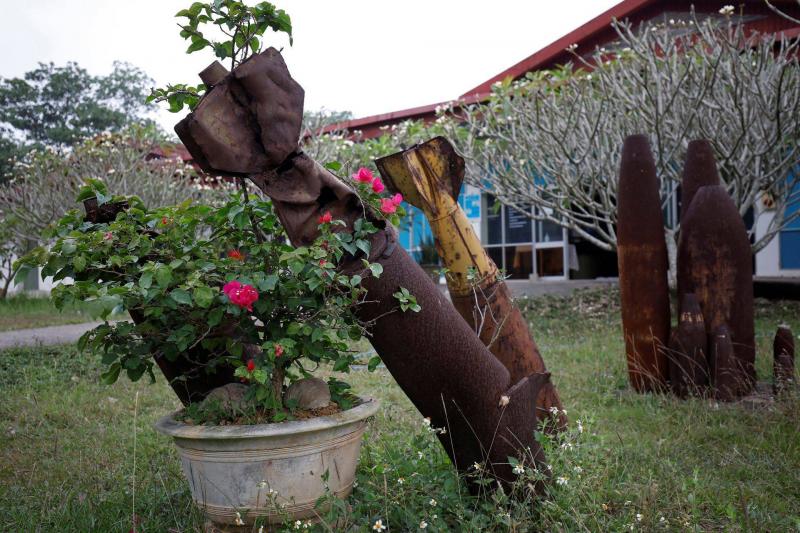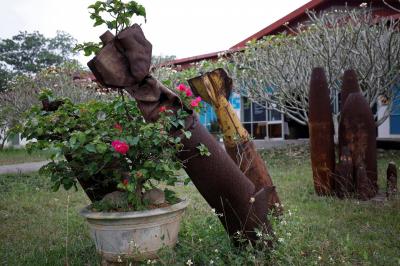And the Open Time Behind Us
A piece of news passed by us without drawing attention or comment: Vietnam announced that it and Israel would sign a free trade agreement. This happened after seven years of negotiations between the two countries. Following this intriguing news are equally exciting reports: bilateral trade between the two countries increased by 18 percent last year, reaching a volume of $2.2 billion. Israel exports electronics and fertilizers to Vietnam, while importing smartphones, shoes, and seafood from it. Moreover, the number of bilateral and multilateral agreements signed between them since the 1990s has exceeded 15. The most significant aspect is that Vietnam, which fears the power of its Chinese neighbor, is one of the largest clients of Israeli military industries, with Israel being the second largest arms exporter to Vietnam after Russia, and it aims to sell a satellite to the Vietnamese. It is worth mentioning that the two countries signed an agreement in 2011 to maintain the secrecy of their security relations, "which accelerated the development of these relations," according to news agencies.
Talking about Vietnam is not merely a detail. Its actual value is very significant, but its symbolic value is greater. Here, we are discussing a country that mainstream Arab political culture considers "a close ally of the Palestinian cause in the face of imperialism and Zionism." It serves as a model that many called upon in the 1960s and 1970s to emulate because it managed to inflict a "humiliating defeat on imperialism," which is of course "Israel's objective ally." The popular Egyptian poet Ahmed Fouad Negm had reassured Palestinians that "Vietnam is the good news of victory coming from under a hundred thousand bombs."
The good news, it seems now, is not a cause for reassurance. The warning is stronger than the good tidings. The fact is that a more vibrant political culture than ours would have chosen to review rather than ignore: a review of what happened in Vietnam and why, and a review of what we have said about it in analysis, rhetoric, and poetry. The urgency of such a task is heightened by the fact that no military coup occurred there, and no alternative administration was elected by the people. Nonetheless, generational and intellectual changes have taken place alongside the shift from prioritizing the cause to prioritizing the country and its interests as seen by the leaders of Vietnam.
Had we adopted a review instead of ignoring, one specific problem would have emerged: what to do to keep friends as friends once they shift from prioritizing the cause to prioritizing the country and interests? Such a shift is bound to happen in their countries sooner or later, unless we assume that the peoples of the earth will live indefinitely in the trench, or we desire that for them.
The most important aspect, which partially explains our lack of review, is the dissonance between the trajectory of the Arab East and that of the Vietnamese. Our celebration of that "resistant" country continued until the first half of the 1970s, and with Vietnam's liberation and subsequent unification, our mention of it began to decline until it nearly faded. Currently, Vietnam appears in Arabic writing as if it has resigned from existence, and the map can hardly accommodate it.
A few days ago, with the launch of missiles from Lebanon at Israel, some Lebanese and Arab observers described what is happening as a "return to the 1970s," specifically to that decade from which Vietnam departed and left behind living in the trench. In Lebanon, the discourse grew strong again about a "joint operations room of the resistance forces," and about "unifying arenas," and about the possibility of further involvement if Israeli extremists continue to violate Islamic sanctities in Palestine... and if the widely held narrative that "Hamas" is the one launching the missiles is true, the similarity with 1975—the year of the outbreak of the civil war—becomes very strong: instead of the "Liberation Organization," "Hamas" replaces it, and instead of the "national movement," "Hezbollah" takes its place, with the difference in strength in the latter case.
What does that mean? More fractured borders, economic and territorial misery, burned lands, and sectarian and ethnic rifts within the relevant countries, and of course, an ever-increasing distance from establishing national sovereignty in Lebanon, Syria, and the broader Arab East. Thus, the difference between us and the Vietnamese seems to also concern time: they chose to move past the cause and trench towards the state and interests. They made this choice in a manner that we might not agree with, but that is another matter. As for us, who eternally reside in a cause, not in a particular country, we move our present day to the 1970s, from which, if we are forced to depart, we turn to the 1960s, and perhaps to the 1950s. The decades are open behind us, provided that the trench is always secured. Only those who precede us in this match are the religious Jewish settlers, whose leaps backward are counted in centuries. We’d better sort ourselves out!




